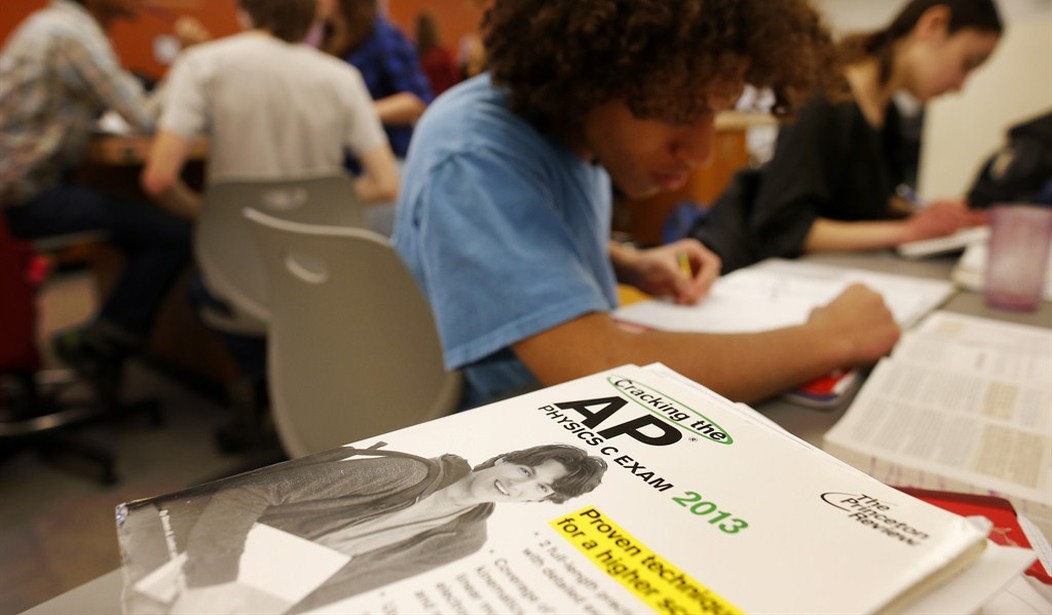There are many professions around the United States that require aspiring workers to complete varying amounts of training and pass trade-specific examinations in order to be able to qualify for a job. (Probably far too many, to be honest. Some states require months of training and hundreds of dollars in fees to be a hairstylist while other states barely have any requirements.) In Maryland, the process required to become a social worker is under scrutiny because the standardized exam administered to graduates is being flunked by a disproportionate number of Black postgraduate students. Maryland legislators are now considering “fixing” the problem by simply doing away with the exam requirement. This leads us to the obvious question of how a standardized exam could be racially slanted.
When Emanuel Wilkerson sat for the exam to become a licensed master social worker, he had nine job offers lined up. All he had to do was pass.
Starting in May, Wilkerson, 24, took the exam three times in four months. He spent his summer studying. He sank at least $1,300 into test preparation and fees. He failed each time ― by 10 points, by six points, and then by a single point…
Wilkerson, who is Black, was a standout during his undergraduate career and the first in his family to earn an undergraduate degree.
There is little question that a definite racial disparity exists. For graduates attempting to obtain the highest, master’s level certificate in social work in Maryland, the numbers were stark. 86% of test takers who identified as white passed the master’s exam on the first try. Just 45% of those identifying as Black managed the same feat. That’s an almost two-to-one disparity. Other racial groups fell somewhere between the two.
Earlier today, we looked at the question of how COVID deaths have tracked in a curious fashion based on race. But the question of scholastic performance in advanced standardized exams is probably even more puzzling. If you’re talking about performance in public grade schools and high schools, such disparities might be more understandable. Schools in economically disadvantaged areas probably have fewer resources and they don’t attract the higher caliber of teachers that will be picked up by some private schools.
Some examinations have produced racially skewed results in the past that were explainable. Early IQ tests included cultural references that delivered a higher score for people from wealthier (and generally whiter) families. One famous example was a multiple-choice test where test-takers were asked to complete the phrase “cup and…” with four choices. White students were most likely to choose “saucer” as the “correct” answer while minority students (who frequently didn’t use fancy table settings) were more likely to choose “spoon.”
But in this case, we’re talking about people who made it all the way to college and graduated, with everyone in the same field taking the same courses and attempting to pass the same standard examinations. Assuming they are all studying a sufficient amount and passing the same courses, why would there be such a disparity in the results?
Could there still be some cultural differences at play here? I couldn’t find any examples of test questions for the master’s social worker exam, but they are described as essay questions where the student is asked to “identify what they would do in a given situation.” The linked report offers one example of what they refer to as exam questions displaying “cultural blindness.”
Some of the tests’ scenarios show “cultural blindness.” For example, a question might ask what it means if a client constantly touches his hair. Wilkerson said he knows the answer could be that the child is not being washed or is otherwise neglected. But he said that ignores the fact that Black boys tend to touch and curl their hair.
I was completely unaware that “Black boys” are more likely to “touch and curl” their hair than white kids. If that’s true, then perhaps the questions do have a racial slant to them. But then again, if you’ve been through five years of university training, wouldn’t your classes have brought you up to speed on such things?
I’m fairly confident that these exams were not developed to be racially exclusive by intention. Given the clear and large disparity in the test results, however, it does seem that there is a problem here. But as the Association of Social Work Boards warned Maryland’s legislature, eliminating the requirement of passing an exam is not the answer. That could result in “many real-world consequences that could negatively affect the profession.” So rather than ditching the tests, they probably need to find a way to filter out any inadvertent “cultural blindness” and give every applicant a fair playing field to compete upon.








